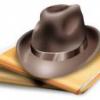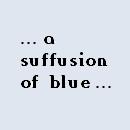@Wonko and Sherlock
Consider this case:
No.
We don't have this case, we did not have this case, we will hopefully have not this case.
We (I put myself in the "basket" though the approach/idea is to be credited to Damian

) we were smart enough to check that the code that we use as patch does not exist before patching (done this manually till now, but nothing prevents to add some code to do it in the program)
This is the base trick for the 32 bit dll's. There won' t be any 33C090 on any 32 bit .dll (unless the good MS guys introduce one "artificially" to make the tool cease to work).
Of course it is not - as said - philosophically correct, it is not even correct from a programmers point of view, and it is possibly also "unfair"

, but as long as it works it is good enough.
There is another approach (that may be good if we assume that the thingy will always be used on USB sticks or the like) i.e. "recording" the addresses of the patches made and unpatch only those addresses, but that would not be a good idea if the thing is used on CD/DVD.
(I do have a plan to solve this also, but I won't reveal it until there will be actually a need for it)
And there is the third approach (which is the "plan B" talked before) i.e. create a database of all possible .dll's with the "correct patches and unpatches".
This last one is the "correct" and "fair" one but it has many limits, when a "new" .dll is found it won't work (while the "generic" approaches
may).
My personal philosophy is that this "plan B" should be a "plan B" and not the "primary approach".
If you want me to say that maybe the thingy was released too early and with not enough beta-testing you could probably manage to do that.
If you want me to say that it is maybe too risky for the average user you could probably manage to do that.
I don't want to give the impression that this is a consolidated, verified, triple checked, fail-proof and fool-proof kind of thing BUT:
- It is not "safe".
- It is an experimental, extremely risky, possibly destructive program.
- If you don't have the guts to test it, move along.
- If you have the guts to test it but it makes your PC unbootable, DO NOT WHINE, you were told about this possibility.
- If it works, good, if it doesn't please report and we'll see if we can make it work.
and that is essentially the reason of the note in my Careware license.
Many thanks Wonko!!!!
Once again you saved me 
The problem was the wenv file, it was older 
Now i've tested in 4 machines and it works flawless  :D
:D
Thanks once again
Yep, that's why it is EXPLICITLY written which version of it to use (and why I prompted you to verify the version).
Happy it worked

, if you could share the EXACT §@ç#ing pieces of info about the OS's, and bit width and .dll versions I would be even happier

.

Wonko
















